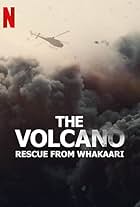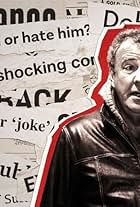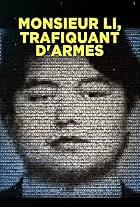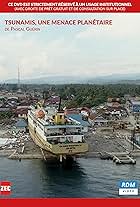Advanced search
- TITLES
- NAMES
- COLLABORATIONS
Search filters
Enter full date
to
or just enter yyyy, or yyyy-mm below
to
to
to
Exclude
Only includes titles with the selected topics
to
In minutes
to
1-50 of 95
- A covert group of tight-knit mercenaries with an inability to die have fought to protect the world for centuries. But when their abilities are suddenly exposed, they need to eliminate the threat of those who seek to replicate their power.
- Cast and crew members from all "Harry Potter" films reunite in a retrospective special to celebrate the 20th anniversary of Harry Potter and the Sorcerer's Stone (2001).
- Portrays human bravery and resilience after a tragic volcano disaster in New Zealand.
- When former pro swimmer Sara and her sister Yusra arrived in Germany from war-torn Syria they were Europe's most celebrated refugees. Now Sara is facing a 20-year prison sentence for volunteering with a Greek NGO, helping other refugees.
- 99% of those who carried out the murders in the Holocaust were never prosecuted. Why not?
- Katarina Witt is the most successful female athlete in the history of figure skating with two Olympic victories, four world championship and six European championship titles. She combines East German identity with international flair and is to this day the "most beautiful face of socialism" - and the most internationally known citizen of the former GDR. She has reinvented herself again and again: as an East German ice princess, as an international show star, as an ambassador for sport. To this day, she confidently stands by her GDR origins, which many give her high credit, but which also brought her hostility.
- Academics, public relations experts, and satirists of various kinds describe the history and nature of propaganda.
- A look at the career of Jeremy Clarkson and the many controversies surrounding him.
- He was the best-known Russian opposition figure in the world: Alexei Navalny, critically poisoned in 2020, arrested in 2021 and locked up in notorious prison camps ever since. On February 16, 2024, Russian media reported his death. Navalny was only 47 years old. The film documents how he became Putin's fiercest opponent and where he stood politically. On February 16, 2024, Russian media reported the death of Kremlin critic Alexei Navalny. He died under still unclear circumstances in the Russian penal colony No. 3 in Siberia. Navalny was only 47 years old. The film documents how Navalny became Putin's fiercest opponent and where he stood politically. Director Igor Sadreev had been secretly working on a film about the most famous Russian opposition figure for a long time. After Russia's attack on Ukraine, he smuggled the extensive filming material out of the country and left Moscow. When he arrived in Berlin, he was able to finish the film together with his colleague, the journalist Aleksandr Urzhanov. The two managed to convince companions, friends and critics to tell Navalny's career from their perspective. These interviews paint a contradictory picture of the prominent Kremlin critic: the beginnings of someone still searching at the liberal party "Yabloko", the expulsion after xenophobic videos and racist statements, the rise as a charismatic anti-corruption activist. Navalny's story becomes a gripping story about the pitfalls and dangers of striving for political power in Russia. But in a system that allows no alternatives, opposition politicians pay a high price.
- He alone threatens the international balance and relations between the great powers: the Chinese arms dealer Li Fangwei, also known as Karl Lee, is said to have enabled Iran to build up an impressive arsenal of missiles. Actively sought by the FBI for several decades, the man is a veritable ghost: intelligence only has a photo and a passport number. Born in 1972 in the far northeast of China, Karl Lee began to attract the attention of the U.S. Secret Service in the early 2000s by making suspicious financial transactions. Washington quickly became aware of the extent of his activities.
- In a traveling specially built video booth, ordinary Ukrainians get to tell in their own words how their lives changed when Russia attacked Ukraine. The box travels around during a year of war. Anyone who wants to can go in and speak freely, without questions being asked. The many testimonies collected from mothers, women, children and the elderly provide a unique insight into everyday life with the war.
- In 2008, at a top-secret facility in Virginia, the U.S. Drug Enforcement Agency (DEA) is working to uncover the criminal resources that feed the coffers of the Iranian-backed Shiite movement based in Lebanon. The DEA knows that the organization, in order to pursue its military and terrorist activities, is involved in cocaine and arms trafficking to the tune of a billion dollars a year. But because the investigation was getting dangerously close to the inner circle of power in Teheran, which Washington was trying to spare in order to save the Iranian nuclear negotiations, the censored agency did not obtain authorization to take action.
- At California State University Dr Eric W Hickey devised a model showing the development of the murderous personality, based on research into more than 200 cases of serial murder. These findings are applied to the case of Jeffrey Dahmer, who between 1978 and 1991 killed 17 young men. Shows conversations between Dahmer and his forensic psychologist and footage of the trial. Behavioural psychologists and criminologists explain how Dahmer and other serial killers such as Ted Bundy, Peter Sutcliffe and John Wayne Casey came to kill.
- Nosferatu, approaching his hundredth birthday, travels to sites used in the film, meets with experts, tells us about his "fathers" (the men who created the film), and reflects on changes in European society and culture since 1922.
- Even today it is considered one of the greatest military feats ever. In 218 BC, a Carthaginian army of ninety thousand men and three dozen elephants set out to cross the Alps to challenge the might of Rome. The exact route chosen by Hannibal, its charismatic commander, has been a matter of dispute ever since. Now, researchers believe they might be able to track his route. It is one of the mysteries of history, which way the Carthaginian commander Hannibal took in 218 BC to cross the Alps. Now researchers believe to be able to prove his exact route on the grounds of the remnants of horse manure. Even during his own lifetime, Hannibal's feat became legend. In five months, thousands of soldiers and cavalry marched about 1,500 km from the Iberian peninsula across the Alps into Italy. Especially the war elephants drew great attention - such animals had never before been seen in the region. Carthage, a then superpower in the Mediterranean region, had been using these animals for war for a while. The question of Hannibal's exact route across the Alps has always been fascinating adventurers and researchers. Now, a group of researchers believes to be able to prove that Hannibal took the route across the col de la Traversette in 3,000 meters altitude. Geomorphologist William Mahaney says that only from there Hannibal could have looked upon the Po Valley. The scenery is described in the sources. The Canadian researcher and his team, among them microbiologist Chris Allen from the University of Belfast, have analyzed soil samples from the French side of the pass. Intestinal bacteria that were found in these samples that a large amount of animals must have crossed that pass during Hannibal's time. In summer 2017, they have taken samples from the Italian side of the pass. They hope that results will strengthen their thesis. Whichever path the Carthaginian may have taken - marching to Rome was a brilliant tactical and logistical feat.
- Tom Daley visits the most homophobic countries in the Commonwealth to explore how gay athletes are facing extreme persecution. What can the Commonwealth Games do to help?
- An exploration of the AK-47 from the perspectives of military historians, former reconnaissance personnel and key historic battles.
- Alan Johnson MP tells the story of 500 years of the Royal Mail. As a former postman, Alan brings his unique personal perspective to this fascinating slice of social history.
- Documentary about the life of Randolph Turpin who in 1951 defeated the legendary Sugar Ray Robinson to win the World Middleweight Title.
- In vielen Ländern gab es Fälle von Babyraub, Irland erlangte in diesem Kontext traurige Berühmtheit, ebenso Argentinien, Chile oder Australien - aber nirgendwo auf der Welt verschwanden so viele Babys wie in Spanien. Und nirgendwo sonst widerfährt den Opfern so wenig Gerechtigkeit. Dass der spanische Diktator Franco nach dem Bürgerkrieg mehr als 100.000 Regimegegner umbringen ließ, ist von Historikern ausführlich dokumentiert. Ein anderes Verbrechen blieb jedoch bis vor kurzem weitgehend unbekannt: Organisierter Kindesraub. In den ersten Jahren der Diktatur ideologisch motiviert, entwickelte er sich bald zu einem lukrativen Geschäft, in das Ärzte, Anwälte, und vor allem die römisch-katholische Kirche verwickelt waren.
- Since the most recent and historic flooding tragedies in Southeast Asia (in 2004 and 2011), researchers around the world are mobilized to study the complex mechanics of tsunamis.
- Sayce Holmes-Lewis was assaulted by the Metropolitan Police at age 14, and since then he has been stop-and-searched over 30 times. Holmes-Lewis spoke to Insider about his experiences and the racism within UK policing. He now runs training sessions for police officers to change the way they interact with the public, and he is the founder and CEO of Mentivity, a mentoring organization for young people.























